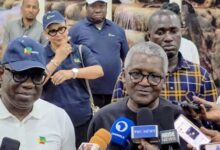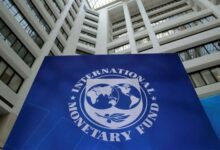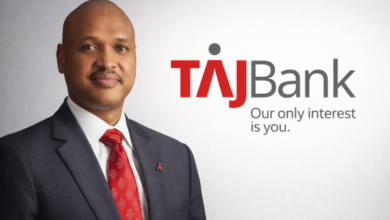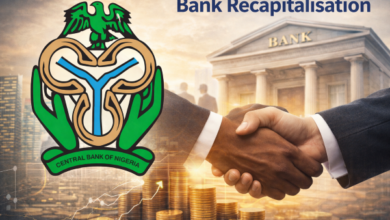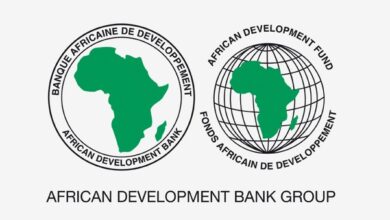Tinubu Tasks NDDC on People-Centered Projects to Transform Niger Delta
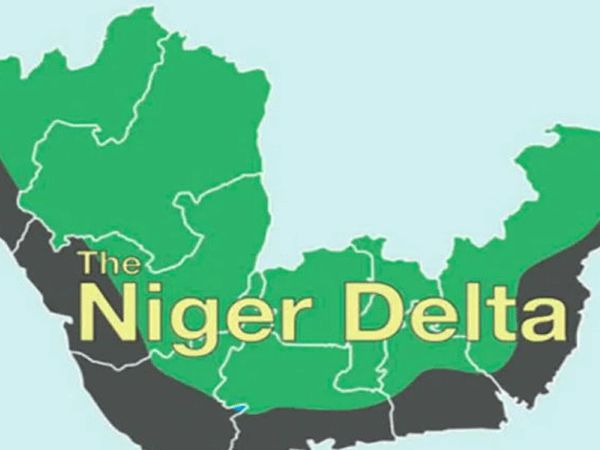
President Bola Ahmed Tinubu has charged the Niger Delta Development Commission (NDDC) to deliver projects that create real impact on lives, empower communities, and drive long-term socio-economic transformation in the oil-rich region.
The President’s call came during the 50th birthday celebration of Dr. Samuel Ogbuku, Managing Director of NDDC, and the launch of his two books “Strategies and Imperatives for Developing the Niger Delta” and “Rethinking the Niger Delta” in Abuja. Represented by Wale Edun, Minister of Finance and Coordinating Minister of the Economy, Tinubu emphasized that the Niger Delta is not only Nigeria’s economic heartbeat but also central to the country’s energy future.
Niger Delta: Resource Wealth, Development Deficit
For decades, the paradox of the Niger Delta has remained stark: vast oil and gas reserves generating billions in revenues, yet persistent poverty, unemployment, and underdevelopment in host communities. Tinubu acknowledged this contradiction and urged Ogbuku’s NDDC leadership to chart a new course of transparent, accountable, and people-centered development.
The President likened the Niger Delta to the “economic heartbeat” of Nigeria, underscoring that sustainable investment in infrastructure, human capital, and environmental restoration is critical to national stability and growth. His message was clear: the NDDC must become a vehicle for inclusive development, not a symbol of failed governance.
Ogbuku’s Leadership and Early Impact
Under Ogbuku’s stewardship, the NDDC has begun restoring public confidence by completing long-abandoned projects. Senate President Godswill Akpabio highlighted the completion of a 14-year-old electricity project in Ondo State’s Ilaje and Okitipupa areas as a major milestone, stressing that unlike previous boards, Ogbuku’s team has remained stable, focused, and reform-oriented.
Akpabio praised the Commission’s new culture of accountability, contrasting it with the short-lived, corruption-plagued boards of the past. “Instead of lobbying for replacements, today we are celebrating continuity and impact,” Akpabio remarked.
From Oil Revenues to Human Development
For development economists, Tinubu’s charge reflects a global best practice: converting oil revenues into long-term human development. Dubai’s transformation—funded by Abu Dhabi’s oil wealth but invested in infrastructure, tourism, and education—offers a playbook Nigeria could emulate.
The Niger Delta, with its fragile ecosystems and history of resource conflict, urgently requires such a pivot. Roads, power projects, water systems, schools, and health facilities—if strategically delivered—could not only lift millions out of poverty but also stabilize oil production by reducing host community unrest.
Ogbuku acknowledged this vision, attributing his Commission’s renewed momentum to Tinubu’s personal charge at his appointment. “The spark came from Mr. President’s words, which inspired our commitment to make the NDDC a model of accountability and impact,” he said.
The Development Imperative
The Niger Delta accounts for over 80% of Nigeria’s export earnings, yet the region lags behind in human development indices. Economists argue that every naira invested in education, healthcare, and infrastructure in the Niger Delta delivers outsized returns by reducing conflict, boosting productivity, and attracting private investment.
Tinubu’s insistence on “projects that touch lives” signals a shift from cosmetic interventions—like uncompleted buildings and abandoned contracts—to measurable outcomes such as electrified villages, functional schools, and job creation hubs for the region’s youth.
Conclusion: A Test of Political Will
The NDDC’s renewed momentum under Ogbuku is encouraging, but the real test lies in sustaining reforms, resisting political interference, and ensuring funds translate into tangible development. For Nigeria, the Niger Delta remains both a blessing and a burden. If Ogbuku’s NDDC can finally deliver on its mandate, it would not only change the lives of millions in the region but also set the tone for how oil wealth can be leveraged to secure Nigeria’s future.




